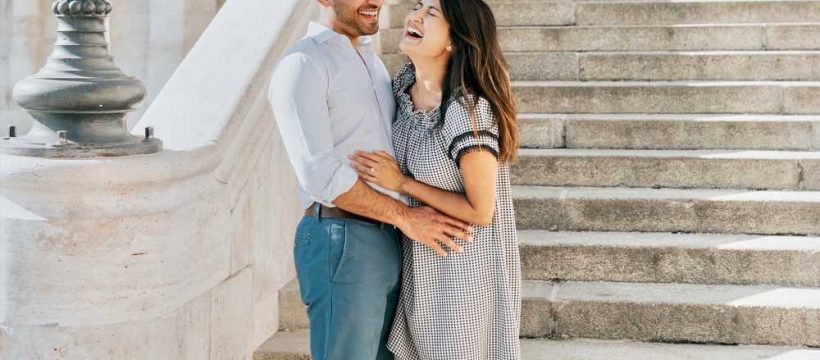At 35-years-old, Saya Nagori had tried it all when it came to dating, from apps and set-ups to a laundry list of mediocre relationships. But the key to finding her Mr. Right, it turns out, was something much more unexpected.
“I met my husband after three months of freezing my eggs,” Nagori tells The Post.
Initially, the former Murray Hill resident decided to shell out the egg freezing cost of $6,000 (plus $10,000 covered by insurance) to Weill Cornell Medicine in 2017 because of her age.
“I knew I would meet someone eventually, I just wasn’t sure when,” she says.
But after the procedure, something strange happened: her dating life got its mojo back.
“I felt like I was in my 20s again . . . running around dating without a care in the world,” the Washington, DC-based medical director at Simple Health says. “I could take my time again, not have to rush anything and I felt, at least for the time being, that I had paused the ‘clock.’ ”
Over the last few years, egg freezing — a procedure in which women are injected with hormones so their ovaries produce eggs that are then extracted and stored in a cryogenic container — has boomed in popularity, with 10,936 women undergoing the technique in 2017, compared with 2,488 in 2012, according to the Society for Assisted Reproductive Technology.
And with it, women are experiencing a renewed sense of freedom — and fun — while searching for “the one.”
After freezing, Nagori, now 36, refused to go on second dates with boring guys.
She says she became “more picky” with her dates and would tell herself, “If you’re not having a good time that’s OK. Don’t see them again.”
It was a departure from her previous habit of second-guessing herself. Back then, the founder of the FemHealth Project would think, “Well, maybe they’d be a good partner — maybe there’s a way there could be a spark.”
‘I felt like I was in my 20s again… running around dating without a care in the world.’
After striking out with a few dud guys, the go-getter was set up on a blind date in the West Village with the man of her dreams.
“Egg freezing . . . put us both on equal footing,” says Nagori.
She boldly broached her fertility journey with her future husband, Chirag Patel, a month into their courtship.
“I had heard about egg freezing, but I didn’t realize that a lot of women were actually doing it,” says Patel, 36. “I thought it was cool that she had the courage to do it, and of course it took pressure off getting married quickly . . . which we did anyway.”
The two lovebirds wed Aug. 26, 2018, but have yet to use their eggs.
For single woman Lindsay Vick, a career-focused fashion-marketing director, the decision to freeze six months ago “has given her a sense of peace” in dating.
“Before, I would really pressure myself and say, ‘Oh, you should go on a date,’ and sometimes I just don’t feel like it, and I give myself that leniency now,” says the Chelsea resident, 34. “I’ve become much more confident and clear in what I’m looking for.”
Upper East Sider Jennifer Huang was also feeling empowered after she froze her eggs six years ago, and started “to refine my screening process,” she says.
“There was one guy I dated for a few weeks, we were in the car, and I just dropped the bomb and said, ‘Hey, by the way, I froze my eggs,’ and he said nothing. Just kept driving,” says the 42-year-old chief marketing officer at Trellis, a trendy new freezing clinic. “Needless to say, I ended things very quickly.
“After I froze the eggs I was like, ‘If I’m committing to this process, I’m not settling.’ So I ended relationships much faster,” she adds.
Today, Huang is happily married with two children — one born naturally and the second from a frozen egg.
But the procedure is far from foolproof.
Chances of a live birth if the eggs are extracted under the age of 35 are about 40 to 50 percent. At age 38, the success rate declines to about 33 percent, and at age 40 or older, it’s 20 percent or less, according to Nicole Noyes, the system chief for reproductive endocrinology and infertility at Northwell Health.
And that’s only if doctors extracted at least 20 viable eggs.
“Reproductive prime [age] is 13 to 30, and we’re really bucking our biology by waiting,” Noyes says.
Yet for women like Nagori, waiting was worth it.
“I know it took a while to get here, but I am grateful for all the experiences, both good and bad,” she says. “Because, ultimately, the timeline led me to the perfect guy.”
Source: Read Full Article


